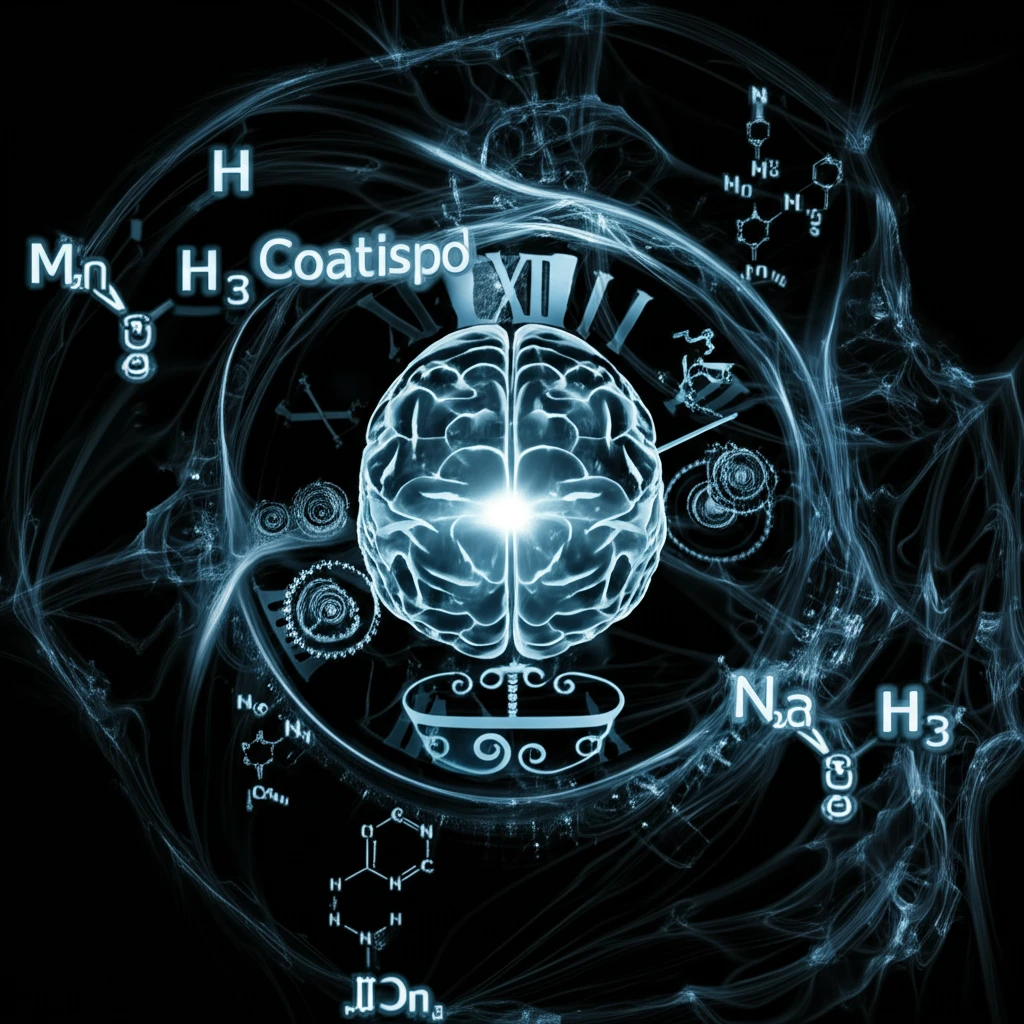
Unlock Your Brain's Potential: How Melatonin and Cortisol Impact Cognitive Aging
"Discover the crucial link between your sleep hormones and cognitive function as you age, and what you can do to protect your brain health."
As we age, disruptions in sleep and our natural body rhythms become increasingly common, often accompanied by concerns about declining cognitive abilities. The intricate dance of hormones like melatonin and cortisol plays a pivotal role in regulating these rhythms, influencing not only our sleep patterns but also our brain health. Understanding this connection is key to proactively supporting cognitive function as we navigate midlife and beyond.
Melatonin, often dubbed the "sleep hormone," is primarily synthesized by the pineal gland and governed by the suprachiasmatic nucleus (SCN) – our brain's master clock. Its predictable rise and fall each day helps regulate our sleep-wake cycle, ensuring restorative rest. Cortisol, on the other hand, is a stress hormone produced by the adrenal glands, with its secretion carefully coordinated by the hippocampus and the hypothalamic-pituitary-adrenal (HPA) axis. Ideally, cortisol levels should be high in the morning, providing alertness, and gradually decline throughout the day, allowing for relaxation in the evening.
Emerging research highlights that maintaining healthy melatonin and cortisol profiles is essential for cognitive well-being. Disruptions in these hormonal rhythms have been linked to age-related cognitive impairment and even neurodegenerative conditions. This article delves into the fascinating relationship between melatonin, cortisol, and cognitive function, offering practical insights into how you can optimize your hormone levels to safeguard your brain health.
The Midlife Melatonin-Cortisol Connection: What the Research Reveals

A groundbreaking study published in Nature and Science of Sleep investigated the 24-hour profiles of melatonin and cortisol in relation to cognitive function in middle-aged men. Researchers recruited 50 healthy males born in 1953, drawing from a population-based cohort with pre-existing cognitive assessments from young adulthood and late midlife. The participants were divided into two groups: those with high cognitive function and those with cognitive impairment.
- Key Findings: The study highlighted that the timing of melatonin release, rather than the overall amount, is crucial for cognitive function. A blunted nocturnal melatonin response may indicate an early disruption in the circadian rhythm, potentially contributing to cognitive decline.
- Why This Matters: These findings suggest that age-related cognitive changes may be linked to alterations in the body's internal clock, specifically the melatonin secretion pattern. Maintaining a robust and well-timed melatonin rhythm could be a key strategy for preserving cognitive health.
Practical Steps for Optimizing Your Melatonin and Cortisol Levels
While the research highlights the importance of melatonin and cortisol for cognitive aging, there's good news: you can take proactive steps to support your body's natural rhythms. Prioritize consistent sleep schedules, aim for 7-9 hours of quality sleep per night, and create a relaxing bedtime routine to promote melatonin production. Expose yourself to bright light during the day, especially in the morning, to help regulate your cortisol rhythm. Manage stress through mindfulness, yoga, or spending time in nature, and consider consulting a healthcare professional about potential melatonin supplementation.
